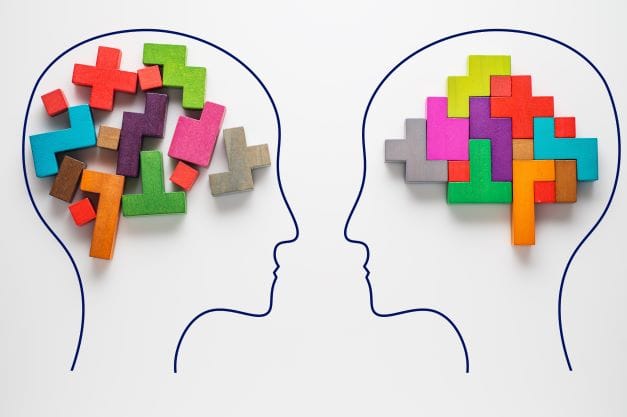Understanding all of this, it’s easy to see how brain training can work in theory – by helping you to create stronger connections throughout your brain and to create new connections entirely – thereby learning new skills and improving those you have.
And this is what has given rise to a lot of brain training programs and sites that teach you to do things like performing maths tests or memory challenges. The more you do this (in theory), the more you strengthen those skills and the better your memory, attention or mental arithmetic will become.
Which sounds like a seal of approval! So should you go ahead and start using that kind of brain training?
I argue no.
While something like Lumocity or Nintendo Brain Age might be useful for challenging you’re recall or your special awareness, the reality is that they are far too specific to be all that useful in the real world.
When you train yourself to become better at spotting the number of cute penguins in a group (this is the kind of setup these fun brain training games often introduce), you become better at doing precisely that. You’re strengthening neural connections around penguins. You’re repeating that game over and over again and becoming better at that game – but this isn’t going to do much for your ability to think of answers in an interview. It’s not transferrable to ‘real world’ skills and for that reason, it’s not going to be much use.
You know what is a good way to train yourself to become better at interviews though? Simple: expose yourself to more interviews! This will put you in the specific set of circumstances you need to enhance that skill and it will ensure you’re using the precisely correct neural pathways.
But that’s not to say that all brain training is a waste of time…
The Very Best Form of Brain Training
The very best form of brain training there is, is simply to challenge yourself to perform numerous different cognitive tasks and to continuously expose yourself to novel situations and challenges.
In other words, you need to consistently try new things, consistently test yourself and force your brain to keep on growing. The more you exercise your brain plasticity, the easier it will be and the more dopamine, norepinephrine, brain derived neurotrophic factor etc. you will produce.
It’s only when you stop learning new things and stop challenging yourself that your brain becomes incredibly un-plastic and you begin to lose abilities.
Because brain plasticity can work both ways. A form of ‘pruning’ does occur when you go for a long time without using a specific neural pathway and that’s why we are inclined to forget things over time. What’s more, is that the brain will eventually stop producing neurotransmitters that enhance neuroplasticity. Brain derived neurotrophic factor (BDNF) and dopamine are directly related to myelination and neurogenesis (the creation of new brain cells) but if you never use them, they will occur less regularly.
A happy brain and a healthy brain is a brain that you are using in lots of unique ways.
Think about what an amazing learner you are as a baby. Why is that? Partly, this is due to the fact that everything around you is novel. The world is filled with things you don’t understand and the brain is flooded with neurochemicals in order to start making sense of it all.
As you get older, more connections are created and you understand the world more. However, you will still continue learning lots of new things and experiencing lots of new things: as you go to school and college, as you move home, as you go through puberty, when you learn to drive, when you try out new hobbies…
But then you reach adulthood. You find a happy relationship, you fall into a job you like and your life finds a rhythm. You do that same job, day in and day out for the next 50 years. And the older you get, the fewer new experiences you expose yourself. You stick with the same friends, you stick at the same hobbies… and your brain stops growing.
And it’s this that can eventually lead to danger as you become more likely to experience age-related cognitive decline or brain disorders like Alzheimer’s or dementia. If nothing else, you become more forgetful, more set in your ways and less able to learn more skills.
And this is one reason that fluid intelligence (intelligence as opposed to knowledge), deteriorates as we get older.
But it doesn’t have to be that way! Not if you understand how important it is to keep exposing yourself to new things and to keep learning.
Keep learning new languages. Learn new games. Meet new people. Explore new places.
Even just being in a novel environment will cause a flood of neurotransmitters associated with attention and awareness to fire. Take different routes home from work! Go for a jog and explore.
And use your body – learning with the body is really what the brain is designed for as we’ve seen and so this is an incredibly important way to keep challenging yourself and to keep learning.
Choose activities that will teach your brain useful ‘skills’ as well. If you want to get more from your brain, then why not learn other languages so that you have more ways to process information? Why not teach yourself to become better at math? Or learn programming?
Because here’s the irony – things like this will actually prove to be much more useful in the real world than having a slightly better memory anyway!
The Power of Computer Games
What might surprise you is just how effective computer games can be in all this when it comes to improving your brain power.
Once upon a time, we thought that computer games were bad for children – that they would melt their brains and make them violent (or something). The reality however couldn’t be more different.
Computer games have now been shown in studies to improve decision making under stress. Playing action shooters enables us to make better decisions in less time than people who don’t play computer games. At the same time, they actually improve visual acuity – they make us more efficient at spotting differences in color and at noticing things on the horizon (which of course is a result of looking out for targets). Computer games can even improve your odds of ‘lucid dreaming’ – a type of dreaming where you know you’re asleep and gain the ability to control your movements and the contents of the dream!
But that’s not where the real strength of computer games lies. Rather, computer games offer a very novel kind of brain training because each game is different. Each game uses different controls, which teaches us different motor skills. And each game introduces us to new 3D environments. Sometimes even the physics will change!
Each time you pick up a new game, you’re forced to learn the new controls and the new rules. You have to start finding your way around a new environment and you have to change the way you think. This all takes plasticity as new neural networks are made in your motor cortex, as well as in your prefrontal cortex.
Each time you learn a new game, it’s like learning a new skill. And you have the exact same releases of dopamine (moreso in fact) when you get it right!
In fact, the truth is even more impressive than that. Computer games are addictive because of the release of dopamine. Why is dopamine released when we play games? Because we’re learning. The brain loves learning and if you can make that fun, then suddenly you’ll start becoming better at everything!
Discover more from Personal Blog of Richard Tong
Subscribe to get the latest posts sent to your email.




